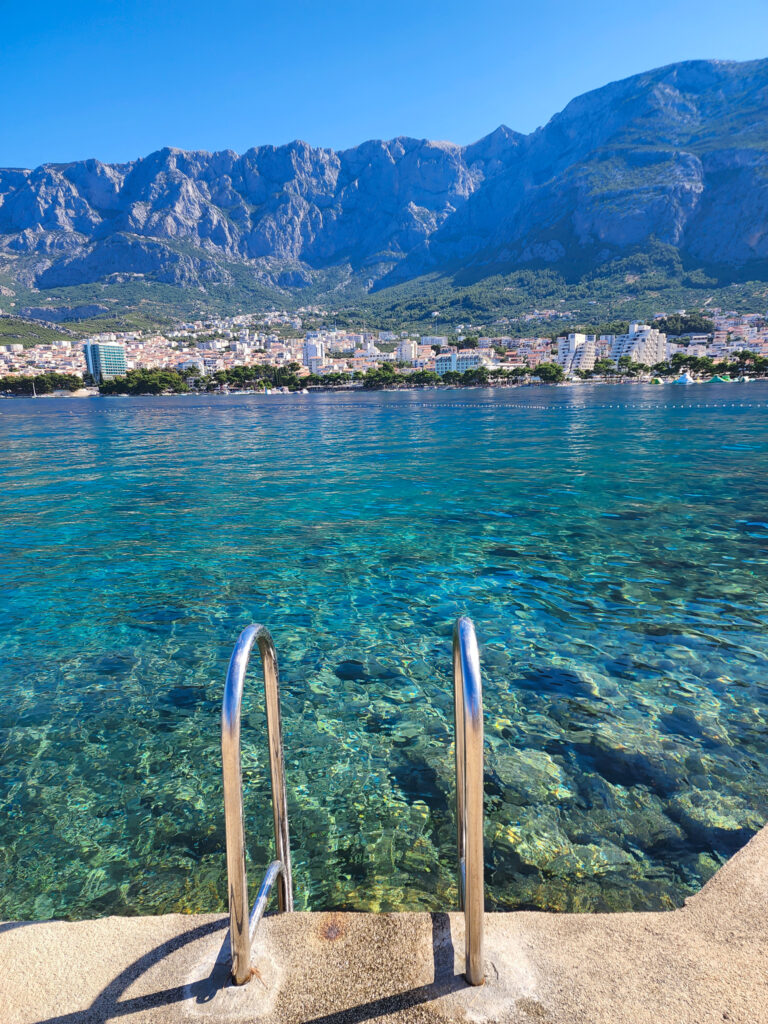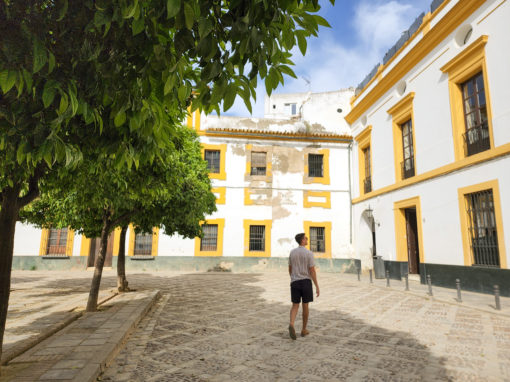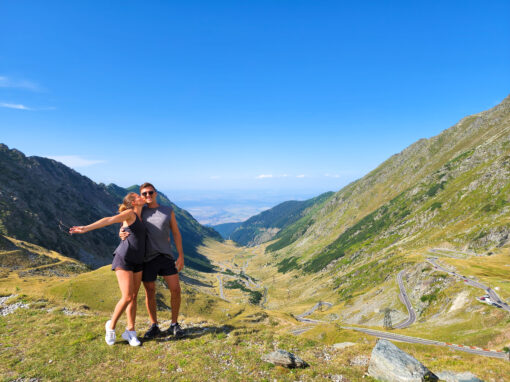Ready to quit your job and travel? If you’re considering taking this big step, then this is the guide for you! We did and definitely didn’t regret it! In 2022 we put our lives on hold and travelled full time for most of the year. We are also about to head off again in 2024 for another period of extended travel after putting out jobs on hold. Scary? Possibly. Rewarding? Definitely! We have written this guide from our own personal experience, listing a few tips below that we think might be worth considering if you want to head for a prolonged period of travel. This doesn’t include ‘everything you need to know’, however it is a good place to start when considering if you want to quit your job to travel the world.



Things to consider when thinking of quitting your job for full time travel..
Holiday vs Work:
We recommend that you decide early if you want to work overseas and travel inbetween, or travel only. This will drastically change visas, money decisions and where you will go. For example, if you wish to work overseas, you are likely to be limited by what language you speak, roles available, and what countries you can apply for working visas from. A common destination for Australian’s and American’s to reside for work is the UK, due to the ‘easier’ permits and English speaking. You need to consider and decide this quite early, as the visa application process often takes a lot of time to complete, and can be months until it has been approved.. definitely not a ‘last minute’ decision.


We made the choice to travel only, however we did flirt heavily with the idea of work in the UK. As physiotherapists, we could obtain work in the UK, with this a common pathway for Australian-trained physios to take. However, we came to the decision we wanted an proper ‘break’ from work to allow us to mentally refresh, recharge, have space to consider other opportunities, and the ability to see a whole lot more than if we were employed. We were lucky to be in the financial position where this was viable, however the work vs travel & work decision will often involve financial considerations.
Money Money Money:
There is no hiding this.. full time travel is expensive. There are ways to reduce costs but you need to save a reserve of $$ first. We recommend saving more than you think you will need, as accidents happen. Having a rough budget and plan around the costs is advisable, as ‘little things’ like busses, ferries, trains etc can add up, especially when combined with flights, accommodation and the cost of day-to-day living. While things can get expensive, and we strongly recommend you budget for the length of time you wish to visit, we thing the cost is more than worth it (but we are biased haha). Take a look at our guide on how to save money when travelling full time (see here or below).
Visas & the Schengen Zone:
The complexities of visas is definitely something to get your head around prior to heading off on your adventures. If you are looking for a work or long-stay/permanent visa, this will be more complicated and take more time. However, if you are visiting for holiday, depending on the country, you may be entitled to a visa waiver (e.g. Schengen Visa), an entry visa (e.g. like Bali Indonesia), or a pre-purchase visa (like Turkey, Vietnam, USA etc). Popular travel destinations in Europe are often part of the Schengen zone, meaning you can travel between countries for a period of time without needed different visas per destination. However, most waivers or visas will have a time limit (e.g. 30 days, 90 days etc), which is something that will influence your travel. For those looking to visit Europe, we highly recommend you read our detailed Schengen Zone guide which breaks down the rules, loopholes and more.
Your why?
This is a good one to think about when considering quitting your job to travel. This is a big step, and not something we recommend you do lightly. Perhaps you are burnt out? Trust us.. we have been there (see Ky’s introspective article on taking a career break). Maybe you are running away from problems. Or perhaps are you starting a new career (travel blogger anyone?). We think it can be good to acknowledge these reasons at the start, even if it doesn’t change your plans at all. If you address or understand these reasons, not only might it help you put strategies in place for your next steps (e.g. when you come home, next career), it will also reduce the risk of a rude shock when you eventually return to ‘normality’ after your travels.


Research Research Research:
When planning longer forms of travel, especially full time, we definitely recommend getting some research in before you head off on your adventures. While you may not book everything or have strict plans, the research is super important to understand the visas, costs associated, rough plan of what you want to do, safety concerns and much more. If you are quitting your job to head on extended travel, at least be aware of what this might involve, and be prepared for if anything may go wrong. We enjoy having a rough structure before our longer and full time trips, with plans booked at least a few weeks in advance, and then have the ability to be flexible. While there are numerous excellent research sources online, our favourites include Travel Blogs, Lonely Planet Books, and Travel Youtube Videos.
Take opinions with a grain of salt:
When you tell others you are planning on quitting your job to travel, you’ll likely receive mixed reactions from many. Not everyone will agree with this decision, and many will openly say you are making a mistake. We had many close friends and family urge us to reconsider, particularly Tessa’s nonna who couldn’t understand why we quit our ‘dream jobs’ to go travelling. You will likely receive many ‘words of advice’ regarding travel destinations, how to do things, and what to consider regarding your plans. We urge you to take all of this with a grain of salt, both the positive suggestions, and the negative ones.
Bank/credit cards:
This isn’t an area of expertise for us (but something we are improving), however we urge you to look into this early as many credit cards have great points bonuses which can help booking flights (e.g. 100,000 points sign up bonus for credit cards – this might be half your flight cost). It is also worth having cards that have low or no overseas fees (we use the 28 Degrees CC and are looking at others). Many banks have high transaction fees overseas, so look into this with your bank, and consider other options like Up Bank, Wise, CitiBank, HSBC and ING.. but there’s likely to be many other good options. Additionally, many banks and credit cards give you access to airport lounges for free, a great perk when on the road a lot.
Travel & health insurance:
This is a super important one, especially if you’re on the road full time or for an extended period. Look into and book your travel insurance and health insurance in advance. If you’re on the road it’s important! We have been using Safety Wing recently and have used Covermore, Insure&Go and RACV before. It may seem an inconvenience and cost at the time, however you’ll be super grateful if you lose something, have a medical emergency, or need support overseas.
Money priorities:
When travelling full time, it is important to consider the impact on long term and your financial plans. We made a conscious decision here while others around us bought houses, deciding to invest in ourselves and experiences (plus a little investing in shares). This isn’t financial advice, and you need to ensure this is something that works for YOU, and that you can afford to do this both short and long term. We are all for prioritizing travel over a house, just make sure you’ve considered the financial impact, and what the economic situation looks like for you.
Support the travel community:
We urge you to support the travel community – network with bloggers, content creators and support others doing the same thing! If you’re travelling full time, you will likely be utilizing many of the content creators resources as inspiration, and to help plan your travels. Support doesn’t have to equal monetary contribution, one of the best ways to support travel bloggers like us and the community is through simple actions like:
- Subscribing to their blog/website (you can join our community below if you’ve found our guides useful!)
- Following and engaging on their social media – little things like liking a post, commenting and sharing a story can make a massive difference to their engagement.
- Booking accommodation through their booking.com links (doesn’t cost more for you, helps pay their website/equipment)
- Recommend their guides to others if you found it useful.

Did you get value from this guide? Consider subscribing to our blog!
Jump your email into the list below. We won’t spam you! It’ll just keep you updated whenever we post another travel-related adventure, memory or tid-bid!
WANT TO SEE MORE TRAVEL RECOMMENDATIONS?
Note: this post contains affiliate links. This means that if you purchase or book anything using these links, we get a small percentage of the sale, at not extra expense to you. This helps us to run the site.



